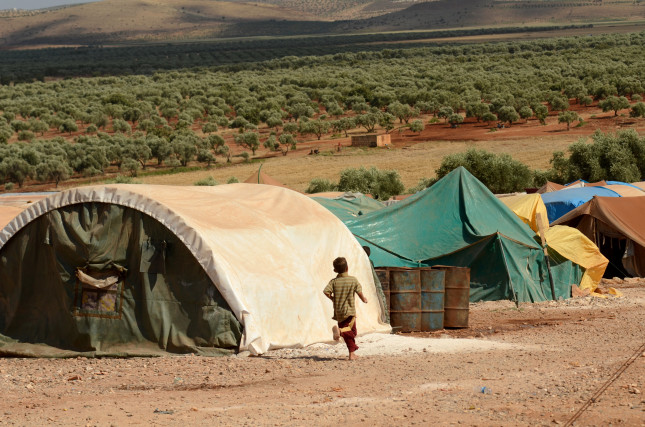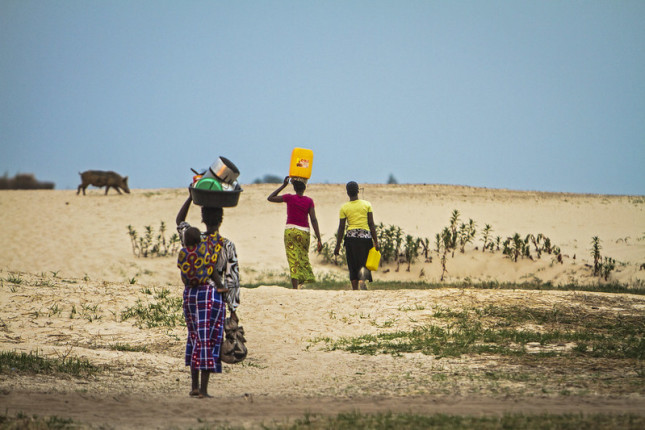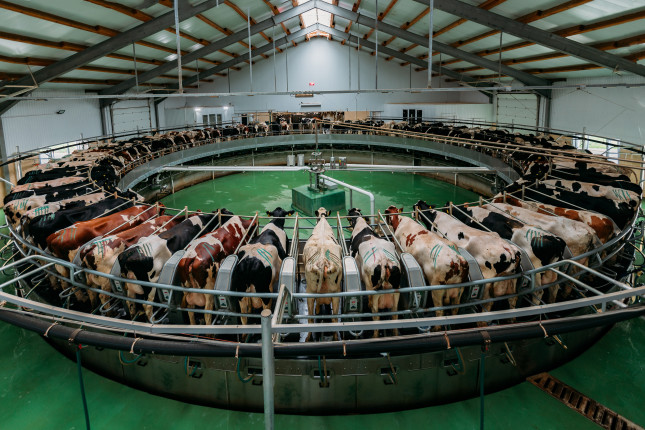-
Shifting the Climate Security Narrative: How the Department of Defense Can Lead
›
In 2021, US Defense Secretary Lloyd J. Austin III referred to climate change as an “existential threat”—a term traditionally reserved for nuclear weapons. Yet two years and several strategic plans later, tangible progress to mitigate and prepare for this threat remains elusive, especially on the international scale where the greatest impacts could be realized.
-
ECSP Weekly Watch | September 11 – 15
›
A window into what we are reading at the Wilson Center’s Environmental Change and Security Program
Treading Water: Why Were Libya’s Floods So Devastating?
This week’s devastating disasters in Morocco and Libya underscore the cascading effects of environmental shocks (and in the case of Libya, climate-related shocks), as well as the cross-sectoral response needed to comprehensively address the damage.
-
Climate Adaptation at COP28: Eyes on the Middle East
›
When COP28 begins in the United Arab Emirates in late November of this year, the multifaceted connections between climate and conflict are expected to receive greater attention from participants than they have at previous conferences.
While there is scant direct causal evidence to suggest that climate change causes conflict, there is a growing body of information that it can influence the risk of conflict by hurting economies, changing broad patterns of human behavior and movement, and straining social cleavages.
-
ECSP Weekly Watch | September 4 – 8
›
A window into what we are reading at the Wilson Center’s Environmental Change and Security Program
Peace and Prosperity in the Sahel: Climate Security is Key
Liptako-Gourma is a landlocked region located on the borders of Burkina Faso, Mali, and Niger. It possesses significant mineral, water, and biodiversity resources, and strategically positioned for both economic opportunities and cultural exchange.
-
High Temperatures Threaten Maternal and Newborn Health–Climate Change Policy Must Adjust
›
Extreme heat can be deadly, and 2023 is on track to be the hottest year on record. In the United States, heatwaves cause more deaths than any other weather related events. In Europe, close to 62,000 deaths during Summer 2022 were linked to heat related causes. Globally, an estimated 5 million people a year die from extreme temperatures–hot and cold.
-
ECSP Weekly Watch | August 28 – September 1
›
A window into what we are reading at the Wilson Center’s Environmental Change and Security Program
Carbon Markets: One Sheikh’s Interest in Africa’s Resources
Why has a company in the United Arab Emirates (UAE) taken an interest in Africa’s forests? Sheikh Ahmed Dalmook Al Maktoum ‘s company, Blue Carbon, recently initiated deals with several countries (Liberia, Tanzania, Zambia, and Zimbabwe) that exchange management of African forests in these nations for carbon credits.
-
The Rising Challenge of Dairy Greenhouse Gas Emissions
›China Environment Forum // Guest Contributor // August 31, 2023 // By Ben Lilliston & Shefali Sharma
The abundance of milk, cheese, and egg on our kitchen tables are inseparable from the rise of large feed-grain-dependent dairies. In today’s global dairy industry, giant dairy farms are displacing smaller farms and increasing methane emissions. China’s rapid dairy expansion, alongside major players like the EU, US, and New Zealand, also raises environmental concerns. What can government regulators and stakeholders do to curb greenhouse gas emissions from the dairy industry?
-
ECSP Weekly Watch | August 21 – 25
›
A window into what we are reading at the Wilson Center’s Environmental Change and Security Program
Deforestation Dynamics in Colombia: The Role of Armed Groups
A 29% drop in deforestation in Colombia in 2022 was labeled as a victory for President Gustavo Petro. Yet there is another reason behind the decrease. Armed groups, such as the Estado Mayor Central (EMC), have imposed logging bans in areas under their control, and levy fines amounting to 251 dollars per hectare.
Showing posts from category climate change.








